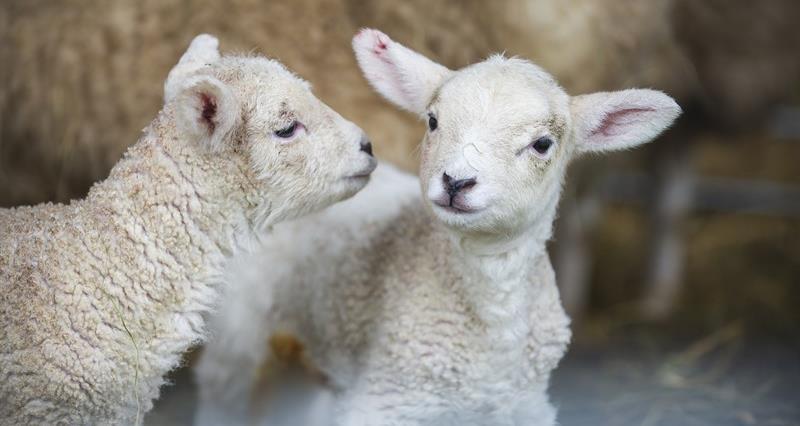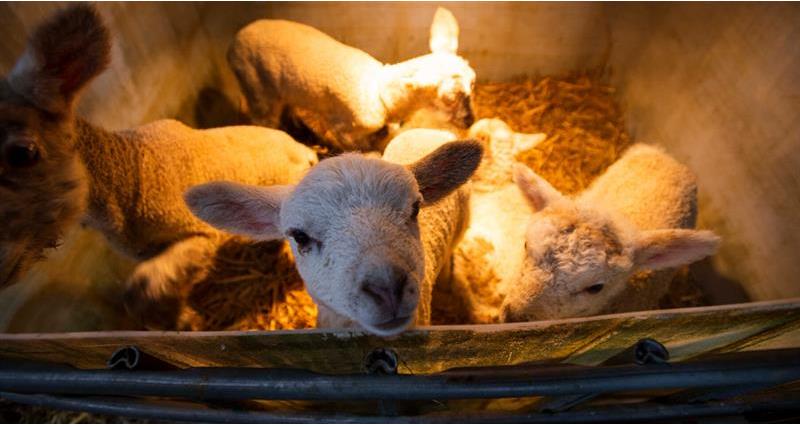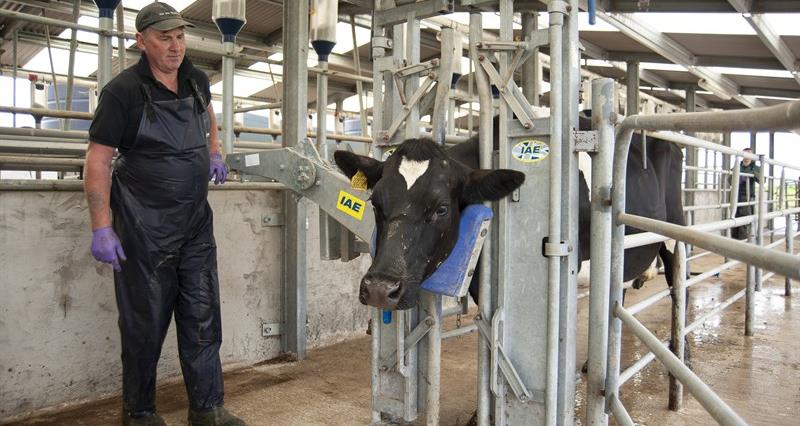The challenges of lambing time means there is a requirement to work longer hours, often into the night with early starts and less of a chance to take sufficient breaks. This causes the risk of exhaustion to increase.
Whether you lamb inside, or outside, safety needs to be considered:
- Take care with manual handling, for example with upturning sheep or carrying bags of feed. Use tools such as turnover crates or sack trolleys wherever possible.
- Take care with administering injections and other animal medications as they can have adverse effects if they enter the human body.
- While the risk of fatality is lower with sheep compared to other livestock, they are still unpredictable and can result in injuries if, for example, you are kicked or headbutted.
- Good hygiene is always important, but is vital during lambing, such as thorough handwashing, especially before eating. This will help to prevent the impact of potentially harmful zoonotic parasites that can be present in sheep.
- Work to reduce slips, trips, and falls by keeping barn walkways clear and handling sheep in small, enclosed areas.
Good hygiene
Sheep can carry and transmit the zoonoses toxoplasmosis and ovine chlamydiosis. The risk of transmission to humans is highest when ewes are in lamb.
Some sheep can be asymptomatic, while some can abort as a result of the parasites.
While most people may not be affected by the risk of transmission, anyone pregnant are at significant risk of miscarriage as a result of contact with in-lamb ewes.
As such, significant care must be taken:
- Those who are pregnant should avoid contact with any sheep, particularly those in-lamb, throughout the duration of the pregnancy.
- Good hygiene of those interacting with sheep is essential, especially if the person handling the sheep will come into contact with anybody who is pregnant.
- Anyone pregnant should not come into contact with any bodily fluids from sheep including blood, unpasteurised milk, amniotic fluids and excrement as these substances can transmit the parasites, even if contact directly with sheep has been avoided.
Managing tiredness
Exhaustion can slow down the speed at which tasks are able to be completed and may create an environment where mistakes are more likely to be made.
This can result in higher risks of injury or incident on farm as well as making those working on the farm and affected by exhaustion less effective and less efficient.
Evidence suggests that the months following those characterised by the busiest times of year – May following lambing and calving and September following harvest – have the highest numbers on average of fatalities. This shows a clear link between exhaustion and the impact it has on perception and risk taking.
To help manage exhaustion:
- Eat a balanced diet to maintain energy levels. Poor diets are associated with poor sleep quality.
- Take rest breaks whenever possible.
- Ensure good quality sleep can be had whenever possible.
- Try not to rush tasks, as mistakes and safety risks can occur.
General safety measures
Other important general safety measures are:
- Wear a helmet with ATVs. Ensure driving styles are appropriate for the circumstances. Training helps with this.
- Ensure pedestrians are kept safe when machines are moving.
- When moving bales from stacks, ensure the stack cannot fall on anyone or anything in the vicinity.
- Injuries or incidents that require time away from the farm will put extra pressure on those you are working with and create additional challenges that may not be accounted for initially.
As such, it is in the best interest of the efficiency of the business and the safety of all involved to ensure that risk is managed in every aspect of work on the farm. ‘Take 5 to stay alive’ and remember to put safety measures in place.



